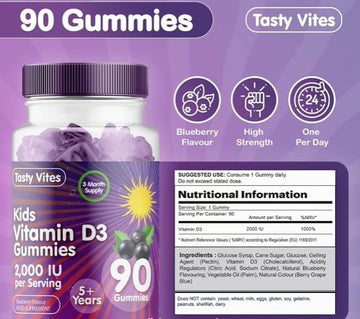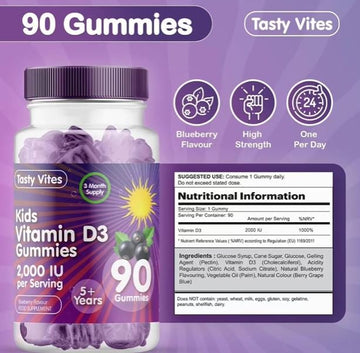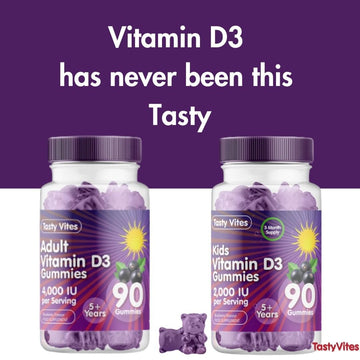Vitamin D, aka the “sunshine vitamin”, but what does it actually do?
by Oliver Morgan on Jul 10, 2022

Vitamin D, also known as the “sunshine vitamin,” is an essential nutrient that plays a crucial role in many bodily functions. Although it's commonly associated with bone health, vitamin D has many other benefits that you may not be aware of. In this article, we’ll explore the main benefits of vitamin D, the best sources of the vitamin, and some positive research studies.
One of the most significant benefits of vitamin D is its role in bone health. Vitamin D is essential for the absorption of calcium, which is necessary for building and maintaining strong bones. A lack of vitamin D can lead to weak bones, which can result in conditions such as osteoporosis, particularly in older adults. Therefore, adequate vitamin D intake is vital for maintaining bone health and reducing the risk of fractures.
But vitamin D’s benefits extend beyond bone health. Studies have shown that vitamin D can also boost the immune system and reduce the risk of chronic diseases such as cancer, heart disease, and diabetes. Vitamin D has anti-inflammatory properties that can help reduce the risk of chronic inflammation, which is a contributing factor in the development of many chronic diseases.
Moreover, vitamin D has been linked to mental health. Research has shown that low levels of vitamin D can increase the risk of depression and other mood disorders. Studies have also suggested that vitamin D may play a role in regulating sleep patterns and improving overall cognitive function.
So, what are the best sources of vitamin D? The most natural way to obtain vitamin D is through exposure to sunlight. When your skin is exposed to sunlight, it produces vitamin D. However, the amount of vitamin D produced by your skin depends on various factors such as skin type, geographic location, and time of day. In some cases, people may not be able to get enough vitamin D through sunlight exposure alone, particularly during the winter months or if they live in a region with limited sunlight.
Fortunately, vitamin D can also be obtained through food sources. Some of the best sources of vitamin D include fatty fish such as salmon, tuna, and mackerel, as well as egg yolks and fortified foods such as milk, orange juice, and cereal. Supplements are also available for those who cannot get enough vitamin D through their diet or sunlight exposure.
There have been many positive research studies that have explored the benefits of vitamin D. One study conducted in 2017 found that taking vitamin D supplements reduced the risk of acute respiratory infections such as the flu. Another study found that adequate vitamin D levels were associated with a reduced risk of type 2 diabetes.
Moreover, several studies have suggested that vitamin D may play a role in reducing the risk of certain types of cancer. A study published in the Journal of the National Cancer Institute found that higher levels of vitamin D were associated with a lower risk of colorectal cancer. Other studies have suggested that vitamin D may play a role in reducing the risk of breast, prostate, and pancreatic cancer.
In conclusion, vitamin D is an essential nutrient that plays a crucial role in many bodily functions. Its benefits extend beyond bone health, with studies suggesting that it can boost the immune system, reduce the risk of chronic diseases, and improve mental health. While sunlight is the most natural way to obtain vitamin D, it can also be obtained through food sources or supplements. So, make sure you’re getting enough vitamin D to reap its many benefits!
One of our most popular products our Kids Multivitamin Gummies includes the recommended daily dose of vitamin D for kids aged 5-16 years old, click here to buy now.




